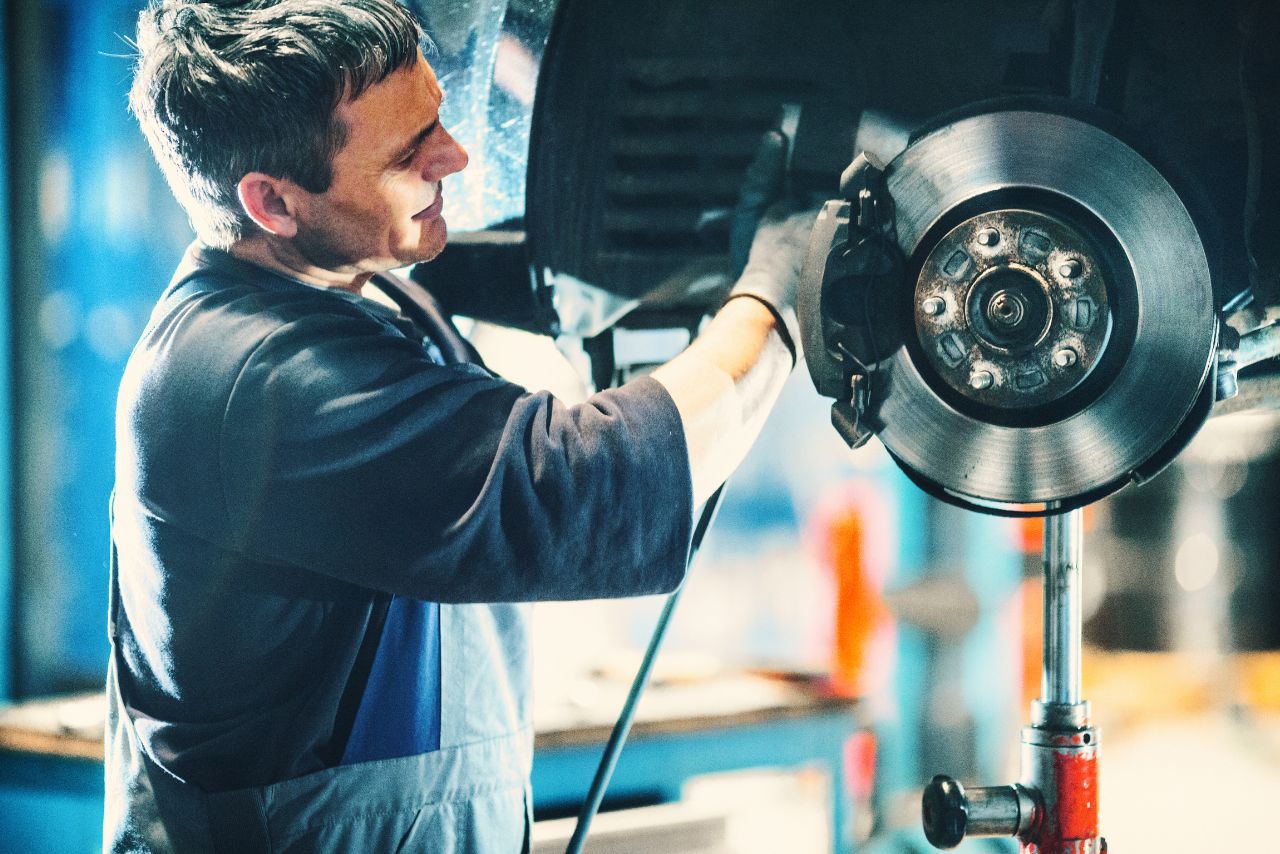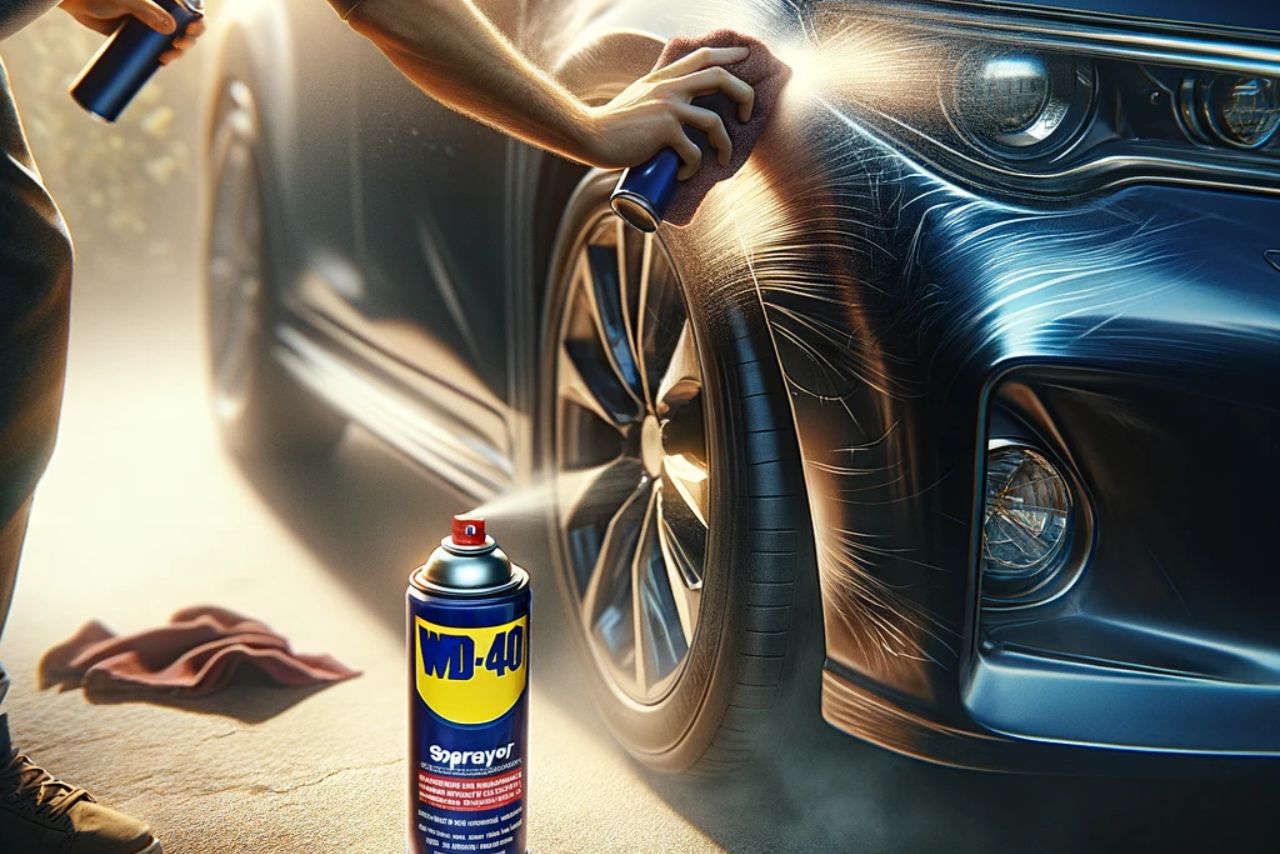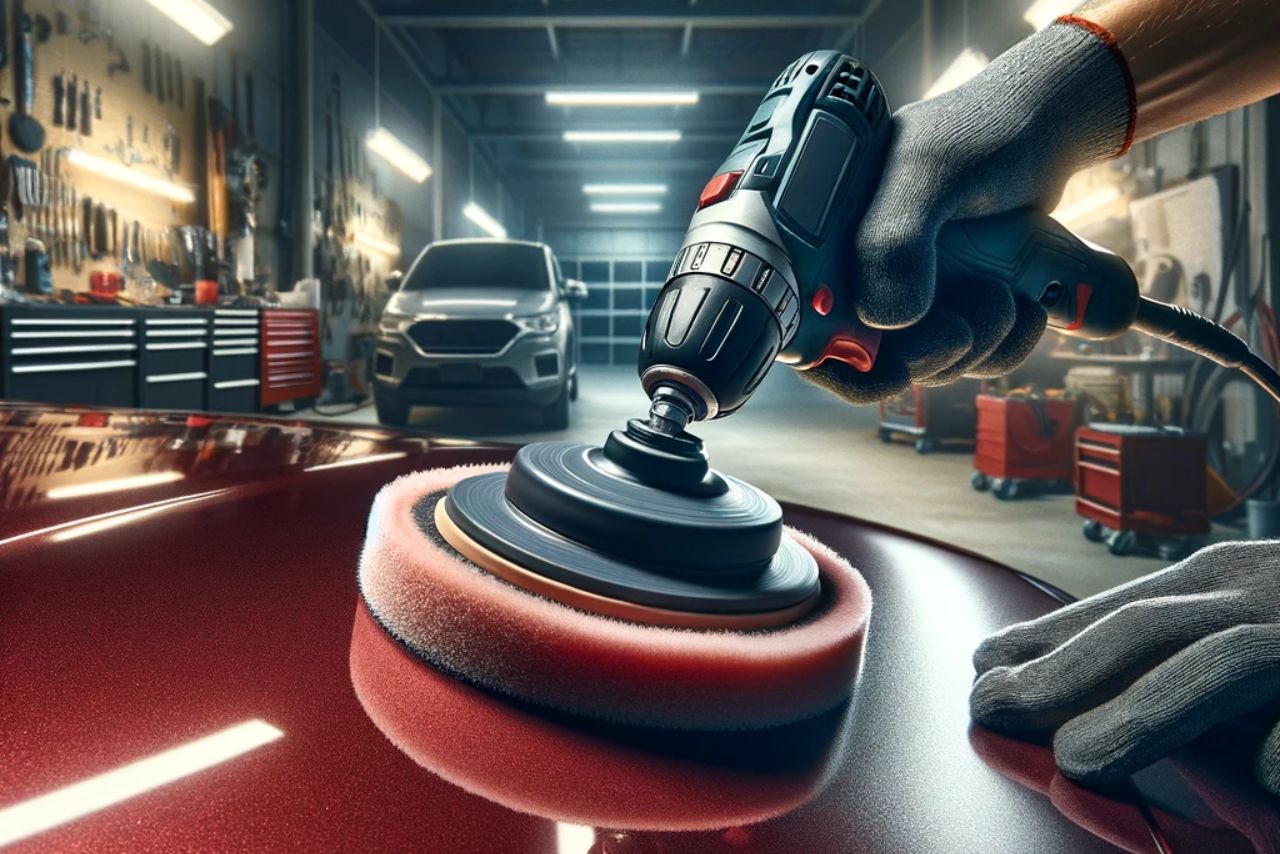Have you ever experienced a Car Makes Groaning Noise When Reversing? It can be a worrisome sound that can leave you wondering what’s going on with your vehicle.
This type of noise can be caused by a variety of issues, but it’s important to identify and address the problem as soon as possible to avoid further damage.
In this article, we’ll explore some of the common causes of a car making a groaning noise when reversing and what you can do to fix it.
A groaning noise when reversing a car can be indicative of several potential issues. It is due to worn-out brake pads or rotors, a problem with the power steering system, or issues with the suspension components.
Table of contents
Why Your Car Might Be Making a Groaning Noise when Reversing?
If you’re hearing a groaning noise from your car when reversing, it could be due to a number of reasons.
One potential cause is worn-out brake pads or rotors. These components can make a groaning or grinding noise when they’re nearing the end of their lifespan.
Another possible culprit is a damaged or worn-out wheel bearing. This can cause a groaning noise when the car is in motion and can get louder when reversing.
Additionally, a damaged or worn-out power steering pump or belt can cause a groaning noise when turning the wheel, including when reversing.
It’s important to have your car inspected by a professional mechanic to accurately diagnose the issue and prevent any further damage. Ignoring the groaning noise can lead to more expensive repairs down the line, and in some cases, can pose a safety risk.
Causes Of Car Makes Groaning Noise When Reversing:

| Cause | Description |
|---|---|
| Worn brake pads | The brake pads are the parts of the braking system that come into contact with the rotors to slow or stop the car. If the brake pads are worn out, they will not be able to grip the rotors as well and will make a groaning noise when you apply the brakes. |
| Stuck-on bits of metal | If there are any bits of metal stuck to the brakes, they can cause a groaning noise when you apply the brakes. This can happen if you have driven through a lot of debris, such as gravel or dirt. |
| Issues with the transmission | The transmission is the part of the car that transfers power from the engine to the wheels. If there are any issues with the transmission, it can cause a groaning noise when you reverse. This is because the transmission is trying to move the car in reverse, but it is not able to do so smoothly. |
| Grease shims without lubricant | Grease shims are used to keep the brake pads from rubbing against the rotors. If the grease shims are not lubricated, they can cause a groaning noise when you apply the brakes. |
| Defective wear tabs | Wear tabs are used to indicate when the brake pads need to be replaced. If the wear tabs are defective, they will not be able to properly indicate when the brake pads need to be replaced. This can lead to the brake pads wearing out too much and causing a groaning noise when you apply the brakes. |
1. Used-Up Pads in the Brakes:
Used-up pads in the brakes are a common problem of Car Making Groaning Noise When Reversing, that can lead to serious safety issues if left unaddressed.
The brake pads in your vehicle are designed to wear down over time, and when they become too worn, they can no longer effectively slow down or stop your vehicle.
This can lead to longer stopping distances, reduced braking power, and even brake failure in extreme cases.
If you suspect that your brake pads are worn down, it is important to have them inspected and replaced as soon as possible.
Fortunately, there are some signs that can indicate that your brake pads are due for replacement.
These include a squeaking or grinding noise when you apply the brakes, a longer than usual stopping distance, or a brake warning light on your dashboard.
2. Low Power Steering Fluid:
A low level of power steering fluid can cause a groaning noise when reversing. The power steering system needs fluid to function properly, and if there isn’t enough, it can cause noise and other issues.
To check your power steering fluid level, locate the power steering fluid reservoir under the hood and check the fluid level.
If the level is low, add more power steering fluid to the reservoir. If you continue to hear the groaning noise after adding more fluid, there may be a leak in the power steering system that needs to be addressed by a professional mechanic.
3. Faulty Suspension:
A faulty suspension can cause a groaning noise when reversing, especially if the suspension is worn out or damaged. This can also cause a bouncy ride and uneven tire wear.
If you suspect that your suspension is the cause of the groaning noise, have it inspected by a professional mechanic. They may need to replace worn-out components such as shocks, struts, or control arms to fix the issue.
4. Loose or Worn Out Belts:
Loose or worn out belts in your car’s engine can cause a groaning noise when reversing. This can be alarming for any driver, but it’s important to understand the cause of the noise and how to fix it.
Belts that are too loose or have started to wear out can slip, causing the engine to strain and produce a groaning sound.
To fix this issue, you’ll need to tighten or replace the belts. It’s important to note that while this issue may seem minor, it can lead to bigger problems if not addressed promptly.
A worn-out belt can snap, causing the engine to stop functioning altogether. Regular maintenance and inspections can help prevent this problem from occurring.
5. Transmission Problems:
If the transmission is damaged, it can cause a groaning noise when reversing. This noise is often a sign that the transmission is struggling to engage reverse gear, which can be caused by a variety of issues.
One of the most common causes is low transmission fluid levels, which can lead to a lack of pressure and cause the gears to grind and groan. If this is the case, simply adding more fluid may solve the problem.
However, if the transmission is severely damaged, it may need to be replaced entirely. Other potential causes of a groaning noise when reversing include worn gears, damaged bearings, or a damaged torque converter.
If you suspect that your transmission is damaged, it’s important to have it inspected by a professional mechanic as soon as possible to avoid further damage and costly repairs down the line.
6. Stuck-On Bits of Metal:
If you’ve ever heard a groaning noise coming from your car when reversing, there’s a good chance it’s caused by stuck-on bits of metal.
These bits can get caught between the brake pads and rotor, causing a grinding or groaning sound. It’s important to address this issue as soon as possible, as it can lead to further damage and potentially costly repairs.
To fix the problem, you’ll need to have your brakes inspected and cleaned by a professional mechanic.
They will remove any stuck-on bits of metal and check for any other issues that may be causing the noise. It’s also important to regularly inspect your brakes and keep them clean to prevent any debris from building up in the first place.
So, if you hear a groaning noise when reversing, don’t ignore it – take your car to a trusted mechanic and have it checked out.
7. Grease Shims Without Lubricant:
If your car is making a groaning noise when you reverse, it may be due to the lack of lubrication on your grease shims.
These small metal plates are designed to reduce friction between the brake pads and the caliper, allowing for a smooth and quiet stop. However, over time, they can become corroded and worn, causing the noise you hear when reversing.
To fix this issue, you will need to grease the shims. While some people may recommend lubricant, it’s important to note that this can actually make the problem worse by attracting dirt and debris.
Instead, use a small amount of grease on each shim, making sure to spread it evenly across the surface.
This will provide the necessary lubrication without attracting any unwanted particles. With this simple fix, your car should be reversing smoothly and quietly once again.
8. Defective Wear Tabs:
Defective wear tabs can be one of the causes of a car making a groaning noise when reversing. Wear tabs are small metal tabs that are attached to the brake pads. They act as an indicator of when the brake pads need to be replaced.
When the brake pads wear down to a certain level, the wear tabs start to make contact with the brake rotor, producing a high-pitched squealing noise.
However, if the wear tabs become defective or break off, they can cause the pads to wear unevenly, leading to groaning noises when reversing.
How to fix a car that makes a groaning noise when reversing?
1. Check the power steering fluid level:
Low power steering fluid can cause a groaning noise when you turn the steering wheel, especially when reversing. Check your vehicle’s owner manual to locate the power steering fluid reservoir and add more fluid if necessary.
2. Inspect the power steering belt:
A worn or loose power steering belt can cause a groaning noise when the wheel is turned. Check the belt for signs of wear, damage, or looseness. If needed, replace the belt or adjust it.
3. Look for damaged suspension components:
A damaged suspension system can cause a groaning noise when reversing. Inspect the suspension components such as control arms, struts, sway bar links, and bushings, for damage or wear. Replace any damaged parts.
4. Check the brake pads and rotors:
Worn-out brake pads or rotors can cause a groaning noise when reversing. Inspect the brake pads and rotors for signs of wear or damage. If needed, replace the brake pads or rotors.
5. Inspect the wheel bearings:
Worn-out wheel bearings can cause a groaning noise when reversing or turning. Jack up your car and wiggle each wheel to check for play. If the wheel wobbles, the bearings may be worn out and need to be replaced.
6. Check the transmission fluid level:
Low transmission fluid can cause a groaning noise when reversing. Locate the transmission dipstick and check the fluid level. Add more fluid if necessary.
7. Look for damaged CV joints:
Damaged CV joints can cause a clicking or groaning noise when turning or reversing. Inspect the CV joints for damage or wear. If needed, replace the CV joints.
8. Inspect the exhaust system:
A damaged exhaust system can cause a groaning noise when reversing. Inspect the exhaust system for cracks, holes, or loose parts. If needed, repair or replace the damaged parts.
9. Check the differential fluid level:
Low differential fluid can cause a groaning noise when reversing. Locate the differential fluid dipstick and check the fluid level. Add more fluid if necessary.
10. Visit a mechanic:
If you’re not sure what’s causing the groaning noise when reversing, take your car to a trusted mechanic. They can diagnose the problem and recommend the necessary repairs.
How to prevent a car from making a groaning noise when reversing?
If you’re hearing a groaning noise when reversing your car, it’s a sign that something is wrong and needs to be fixed. Fortunately, there are a few things you can do to prevent this noise from occurring.
- First, check your power steering fluid level. If it’s low, the power steering pump may be making the noise. Simply topping off the fluid can solve the problem.
- If the fluid level is fine, the next step is to inspect your brakes. Worn or damaged brake pads can cause a groaning noise when reversing. Replace them if necessary.
- Another potential culprit is the suspension system. Check your suspension components, including the shock absorbers, struts, and bushings.
- Damaged or worn parts can cause a groaning noise, especially when turning.
- Finally, make sure your tires are properly inflated and have enough tread. Low tire pressure or worn tires can cause noise and affect your car’s handling. Regular maintenance and inspections of your car can prevent these issues from occurring.
Make sure you follow the manufacturer’s recommended maintenance schedule and take your car to a trusted mechanic if you notice any unusual noises or handling issues.
By taking care of your car, you can prevent problems like groaning noises and ensure a smooth and safe driving experience.
Case studies of cars that have made a groaning noise when reversing:
If you’ve ever heard your car groaning when reversing, you’re not alone. This common issue can be caused by a variety of factors, ranging from minor to more serious problems. In this article, we will discuss some case studies of cars that have made a groaning noise when reversing and what the possible causes and solutions are.
One common case is when a car makes a groaning noise when reversing after a long period of inactivity. This is often caused by the buildup of rust on the brake rotors. In this case, the solution is to clean or replace the brake rotors to eliminate the groaning noise.
Another possible case is when a car makes a groaning noise when reversing and turning the steering wheel. This can be caused by a worn power steering pump or a loose belt. The solution in this case is to replace the power steering pump or tighten the belt.
A more serious case is when a car makes a groaning noise when reversing and the noise persists even after the car is warmed up. This could indicate a problem with the transmission. In this case, it is recommended to take the car to a professional mechanic for diagnosis and repair.
Why Does My Car Make a Loud Noise when I Put It in Reverse?
If you’ve ever heard a loud noise coming from your car when you put it in reverse, you may be wondering what’s causing it.
There are a few different reasons why this may be happening, and it’s important to understand the cause so that you can take the appropriate steps to fix it.
One possible reason for a loud noise when you put your car in reverse is a problem with the transmission.
This could be caused by a worn-out or damaged gear, or by low transmission fluid. If this is the case, you’ll want to have your car inspected by a mechanic as soon as possible, as continuing to drive with a faulty transmission can cause further damage to your vehicle.
Another possible cause of a loud noise when reversing is an issue with the brakes. If your brake pads are worn or damaged, they may be making a scraping or grinding noise when you put your car in reverse.
This can be dangerous, as it can affect your ability to stop your car quickly in an emergency. Make sure to have your brakes inspected regularly, and replace any worn or damaged parts as soon as possible.
Finally, it’s possible that the noise you’re hearing is simply the sound of your car’s gears engaging. Some cars are simply louder than others, and this noise may be perfectly normal.
Metal Grinding Noise when Reversing and Turning:
If you’re experiencing a metal grinding noise when reversing and turning your vehicle, it’s important to address the issue as soon as possible.
This type of noise is often an indication of a problem with your brakes or suspension system. It’s crucial that you don’t ignore this issue and continue driving, as it could lead to further damage and potentially dangerous situations.
One possible cause of the metal grinding noise is worn brake pads or rotors. When your brake pads wear down, the metal backing can come into contact with the rotor, causing a grinding noise.
This can also happen if your rotors are warped or damaged. In addition to the noise, you may also notice decreased braking performance or a pulsing sensation when braking.
Another potential cause could be an issue with your suspension system. Worn out or damaged suspension components, such as ball joints or tie rod ends, can cause metal-on-metal contact and create a grinding noise.
This can also cause your vehicle to handle poorly and become more difficult to control.
If you’re experiencing a metal grinding noise when reversing and turning, it’s important to take your vehicle to a certified mechanic as soon as possible.
They can inspect your brakes and suspension system to identify the cause of the noise and make any necessary repairs. Don’t put yourself or others at risk by ignoring this issue, address it promptly and ensure your vehicle is safe to drive.





Leave a Reply